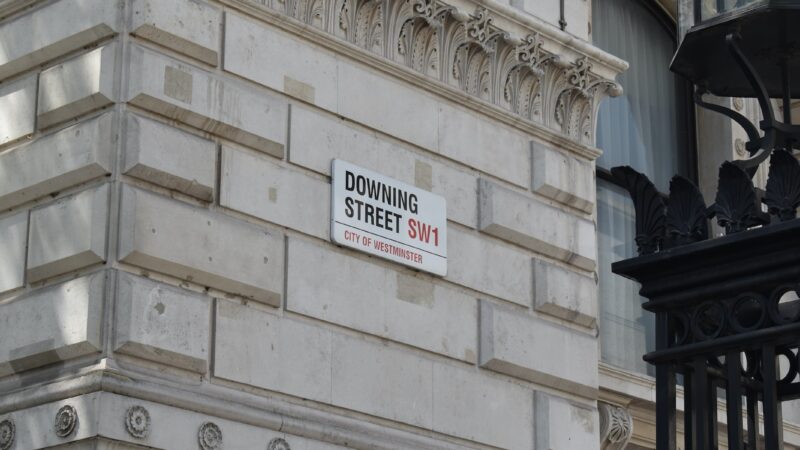As the poppy-adorned date of Remembrance Sunday moves into view, with ceremonies and processions set to take place on the 12th November, I couldn’t help but recall a quote from Nietzsche: “The future belongs to those with the longest memory.”
Typical of seemingly every Nietzsche quote it is dropped mid-essay with little to no further context, moulded to fit the context of the essay being written with little to no regard for the message which Nietzsche is trying to convey to the reader; a message which journalist and philosopher Alain de Benoist outlines with expert clarity:
“What he [Nietzsche] means is that Modernity will be so overburdened by memory that it will become impotent. That’s why he calls for the “innocence” of a new beginning, which partly entails oblivion.”
For Nietzsche, a fixation on remembrance, on recollecting everything that has been and everything that will be, keeps us rooted in our regrets and our failures; it deprives us of the joys which can be found in the present moment and breeds resentment in the minds of men.
As such, it is wise to be select with what we remember and how we remember it, should we want to spare ourselves a lifetime of dizzying self-pity and further dismay. In my mind, as well as millions of others, the most destructive wars in human history would qualify for the strange honour of being ‘remembered’, yet so too would other events, especially those events which have yet to achieve fitting closure and continue to encroach upon the present.
As of this article’s publication, it is the 20th anniversary of the disappearance of Charlene Downes, presumed murdered by the Blackpool grooming gangs. At the time of her murder, two Jordanian immigrants were arrested. Iyad Albattikhi was charged with Downes’ murder and Mohammed Reveshi was charged with helping to dispose of her body. Both were later released after denying the charges.
Currently, the only person sentenced in relation to the case was Charlene’s younger brother, who was arrested after he punched a man who openly joked that he had disposed of Charlene’s body by putting it into kebabs, according to witness testimony; information which led the police to change their initial missing person investigation to one of murder.
As reported in various media outlets, local and national, throughout their investigation, the police found “dozens more 13- to 15-year-old girls from the area had fallen victim to grooming or sexual abuse” with an unpublished report identifying eleven takeaway shops which were being used as “honeypots” – places where non-white men could prey on young white girls.
Like so many cases of this nature, investigations into Charlene’s murder had been held up by political correctness. According to conservative estimates, Charlene is just one of the thousands of victims, yet only a granular fraction of these racially motivated crimes has resulted in a conviction, with local councillors and police departments continuing to evade accountability for their role in what is nothing short of a national scandal.
However, it’s not just local officials who have dodged justice. National figures, including those with near-unrivalled influence in politics and media, have consistently ignored this historic injustice, many outrightly denying fundamental and well-established facts about the national grooming scandal.
Keir Starmer, leader of the Labour Party and likely the next Prime Minister, is one such denialist. In an interview with LBC, Starmer said: “the vast majority of sexual abuse cases do not involve those of ethnic minorities.”
If meant to refer to all sexual offences in Britain, Starmer’s statement is highly misleading. Accounting for the 20% of cases in which ethnicity is not reported, only 60% of sexual offenders in 2017 were classed as white, suggesting whites are underrepresented. In addition, the white ethnic category used such reports includes disproportionately criminal ethnic minorities, such as the Muslim Albanians, who are vastly overrepresented in British prisons, further diminishing the facticity of Starmer’s claim.
However, in the context of grooming gangs, Starmer’s comments are not only misleading, but categorically false. Every official report on ‘Group Sexual Exploitation’ (read: grooming gangs) has shown that Muslim Asians were highly over-represented, and the most famous rape gangs (Telford, Rotherham, Rochdale) along with high-profile murders (Lowe family, Charlene Downes) were the responsibility of Asian men.
As shown in Charlie Peters’ widely acclaimed documentary on the grooming gang scandal, 1 in every 1700 Pakistani men in the UK were prosecuted for being part of a grooming gang between 1997 and 2017. In cities such as Rotherham, it was 1 in 73.
However, according to the Home Office, as they only cover a subset of cases, all reports regarding the ethnic composition of grooming gangs necessarily reject large amounts of data. As such, they estimate between 14% (Berelowitz. 2015) and 84% (Quilliam, 2017) of grooming gang members were Asian, a significant overrepresentation, and even then, these figures are skewed by poor reporting, something the reports make clear.
One report, which focused on grooming gangs in Rotherham, stated:
“By far the majority of perpetrators were described as ‘Asian’ by victims… Several staff described their nervousness about identifying the ethnic origins of perpetrators for fear of being thought racist; others remembered clear direction from their managers not to do so” (Jay, 2014)
Another report, which focused on grooming gangs in Telford, stated:
“I have also heard a great deal of evidence that there was a nervousness about race in Telford and Wellington in particular, bordering on a reluctance to investigate crimes committed by what was described as the ‘Asian’ community.” (Crowther, 2022)
If crimes committed by Asians were deliberately not investigated, whether to avoid creating ethnic disparities to remain in-step with legal commitments to Equality, Diversity, and Inclusion, or to avoid appearing ‘racist’ in view of the media, estimates based on police reports will be too low, especially when threats of violence against the victims is considered:
“In several cases victims received death threats against them or their family members, or threats that their houses would be petrol-bombed or otherwise vandalised in retaliation for their attempts to end the abuse; in some cases threats were reinforced by reference to the murder of Lucy Lowe, who died alongside her mother, sister and unborn child in August 2000 at age 15. Abusers would remind girls of what had happened to Lucy Lowe and would tell them that they would be next if they ever said anything. Every boy would mention it.” (Crowther, 2022)
Overall, it is abundantly clear that deeds, not words, are required to remedy this ongoing scandal. The victims of the grooming gang crisis deserve justice, not dismissal and less-than-subtle whataboutery. We must not tolerate nor fall prey to telescopic philanthropy. The worst of the world’s barbarities will not be found on the distant horizon, for they have been brought to our shores.
As such, we require an end to grooming gang denialism wherever it exists, an investigation by the National Crime Agency into every town, city, council and police department where grooming gang activity has been reported and covered-up, and a memorial befitting a crisis of this magnitude. Only then will girls like Charlene begin to receive the justice they deserve, allowing this crisis to be another cause for remembrance, rather than a perverse and sordid aspect of life in modern Britain.



